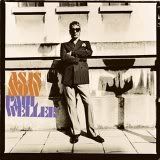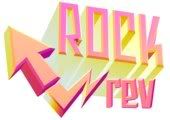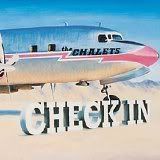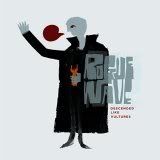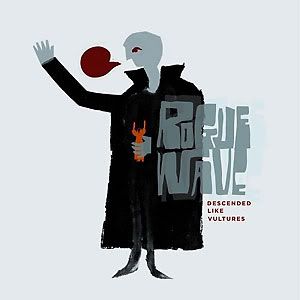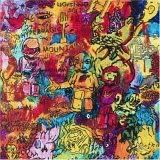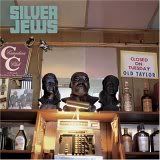 | Silver Jews
Album: "Tanglewood Numbers"
Release Date: Oct 18, 2005
Label: Drag City
Rev Value: [7.5/10]
Genre: Rock
Styles: Alternative Pop/ Rock, Indie Rock
Buy It |
Tracklist:1 Punks in the Beerlight
2 Sometimes a Pony Gets Depressed
3 K-Hole
4 Animal Shapes
5 I'm Getting Back into Getting Back into You
6 How Can I Love You If You Won't Lie Down
7 Poor, The Fair and the Good
8 Sleeping Is the Only Love
9 Farmer's Hotel
10 There Is a Place
review by:
Allmusicreviewer: Heather Phares
Album Value: (4.5/5)
Back after a much-too-long four-year absence — during which David Berman struggled with substance abuse, depression, and a suicide attempt — the Silver Jews return with Tanglewood Numbers, an album full of the wry, insightful storytelling for which the band is beloved, as well as some striking differences. The album's polished sound will come as something of a surprise to fans who have been around since the Starlite Walker days, as will Berman's urgent vocals on tracks like "Sometimes a Pony Gets Depressed." However, these changes work in the album's favor and give an anthemic heft to the most gripping moments, most of which are about confronting troubles and fears head-on: On the album's opening track, "Punks in the Beerlight"'s "burnouts in love" fight to stay that way even when it gets really, really bad; "There Is a Place" closes Tanglewood Numbers by moving from despair to hope with a thrilling, white-knuckle chant of "I saw God's shadow on this world." But, even on the album's most desperate, searching songs, Berman's unfailing eye for detail remains, and Tanglewood Numbers is populated with young black Santa Clauses, girls in special economic zones, and guys who work in airport bars. Funny couplets like "Sleeping Is the Only Love"'s "I heard they were taming the shrew/I heard the shrew was you" and lighter, more typically rollicking Silver Jews tracks such as "Animal Shapes" and "How Can I Love You if You Won't Lie Down" keep Tanglewood Numbers from sounding too much like a recovery journal (not to mention that Berman is too talented a writer to need to rely on strictly autobiographical subject matter). Nevertheless, the dark undercurrent that runs through the album makes sweet moments like these all the sweeter. Hopefully the circumstances around Tanglewood Numbers will never repeat themselves, but there's no denying that this is a uniquely powerful and moving set of songs.
Original Link
review by:
Pitchforkreviewer: Brian Howe, October 21, 2005
Album Value: (7.9/10)
Few cultural moments are as indelible as the one that occurred in fin-de-siècle Montmartre. Capping a hill north of Paris in the 18th arrondissement, the windmill-pocked neighborhood is modernly synonymous with a spirit of free-wheeling debauchery and artistic synergy. In infamous cabarets like Lapin Agile, Le Chat Noir, and Moulin Rouge, bohemian artists and bourgeois Parisians rubbed elbows with pimps and whores amid the bawdy entertainments of Jane Avril and Aristide Bruant. No artist is more emblematic of the period than the painter and lithographer Henri de Toulouse-Lautrec.
David Berman invokes Toulouse-Lautrec's name in "Punks in the Beerlight"-- "Punks in the beerlight/ Two burnouts in love/ Punks in the beerlight/ Toulouse-Lautrec!"-- the first song on Tanglewood Numbers. With this invocation, Berman announces the aura of Tanglewood Numbers. Inextricably linked to time and place? Check. Berman's ear is still turned toward the hard-bitten rhythms and brassy twang of the American South, and his narratives still unfold in real towns and avenues.
Seamy glamour? Check. Where 2001's Bright Flight leaned into full-bore country, emphasizing Berman's voice and lyrical content, Tanglewood Numbers is a band-oriented rock record-- crashing, amped-up, aggressively ramshackle. Berman's wife Cassie, with whom he seems to be developing a Waits/Brennan (or possibly Johnny/June) relationship, reprises her vocal and inspirational role (she penned the noodly dirge "The Poor, the Fair and the Good"); Stephen Malkmus contributes some raucous, cutting guitars; drummer Brian Kotzur and keyboardist Tony Crow supply a yawing foundation; Paz Lenchantin flecks the songs with banjo and violin. These diverse players lurch into a shit-faced stumble to forge a remarkably drunken-sounding record in the angry crucible of sobriety, a rock'n'roll hayride kicking up feathers and peanut shells.
The most interesting parallel between Toulouse-Lautrec's art and Tanglewood Numbers is the signature blend of jubilance and sorrow. Montmartre wasn't all fun and games by a long shot-- what was a thrilling diversion for wealthy Parisians was a harsh reality for its insolvent denizens, and in Toulouse-Lautrec's work, a sense of alienation and hopelessness undercuts the vibrant subject matter. His dingy washes of grey and green allude to the cheap, soul-hollowing aspects of taking pleasure from class division, and no two gazes or trajectories intersect, subtly isolating each of his subjects in their own existential void. Again, the parallel is striking: While Tanglewood Numbers is probably Silver Jews' most fun album to date, with its riotous guitars and rambling sing-along hooks, it's also their saddest, an outsized hangover that makes everything into sharp edges and toe-stubbing impediments, with a patina of dizzy anxiety on every blaring chord.(...)
Full Review
review by:
Dustedreviewer: Nathan Hogan
Album Value: (-/-)
Following a lengthy hiatus, David Berman has resurfaced with a new Silver Jews record and the requisite barrage of press interviews (including one for this site) that are distinct in their variety, candor, and wit per word. Berman answers even the most pat questions so archly, that where I used to imagine it taking him two or more years of careful chiseling to bring together 10 or 12 songs in the manner of American Water (1998) and Bright Flight (2001), you almost wonder if he isn’t sitting on a small mountain of brilliant castoffs. But then how to explain Tanglewood Numbers?
In one of these recent interviews, a writer asked Berman if he had any advice for his sister, who was soon to be graduating high school. This is actually consistent with the level of reverence typically accorded this guy; I felt almost guilty taking up space at an impromptu Silver Jews gig in March of last year, learning only afterward that they occurred about as often as blizzards hit Nashville. Berman’s reply was to quote Schopenhauer – “In this world, there is only a choice between loneliness and vulgarity” – and to specify that, for better or worse, he’d recently reversed directions in pursuit of the latter.
As an auto-critique of Berman’s fifth full-length record this is unduly harsh, though not altogether off mark. The best Silver Jews albums are endearingly lonely affairs – sparsely arranged, countrified songs about drunk, disfigured characters in absurd situations. Their peaks (“I Remember Me,” “Trains Across the Sea,” “Random Rules”) are those moments when the singer’s lazy, shaky voice moves nervously to the fore with sly and self-deprecating humor. Their valleys (“Time Will Break the World,” “Smith & Jones Forever”) consist of same-ish melodies motoring sluggishly through the dust kicked up by countless indie rock bands, burying clever lyrics beneath plodding paint-by-numbers guitar, bass and drums.
Tanglewood Numbers isn’t uniformly of the latter style, but the album presents itself that way, arriving frontloaded with its most bombastic, half-rollicking numbers. The first twenty seconds of “Punks in the Beerlight” consists solely of a lone sparkling shred of electric guitar tone – a promising, unexpected start – until the full-band arrangement kicks in with its booming drums, ponderous rhythm guitar, proggy synth counterpoints, and echo-chamber vocals. The song has the booming, reverb-fueled feel of '70s hard rock – neither bad nor good, really – but Berman’s phrases are uncharacteristically limp. (Rolling Stone bafflingly exclaims: “Berman has a gift for lyrics like "Punks in the beerlight, two burnouts in love / I always loved you to the max!"). I guess the "to the max!" cheer is sort of cute, but "Punks in the beerlight / Toulouse-Lautrec!" made me fearful of the remaining 30 minutes.
(...)
Full Review
review by:
Cokemachineglowreviewer: Peter Hepburn
Album Value: (86%/100)
This last summer I finally managed to devote the necessary time to trying to understand, or at least appreciate, Bob Dylan. I tried to avoid the big names (Blonde on Blonde, Highway 61 Revisited, Nashville Skyline) and instead spent weeks listening to New Morning, Desire, and Slow Train Coming. I read Chronicles, Vol. 1 and tried to understand where he was coming from as I listened to The Freewheeling Bob Dylan and John Wesley Harding. What struck me most is how, over the course of 14 years (1962-1976), Dylan managed to not only create a good half-dozen of the best album ever recorded, but also totally reinvent folk music.
Earlier this year, Rolling Stone put forth the theory that Connor Oberst is the heir-apparent to Dylan’s poet-singer throne. It’s a ridiculous supposition. First, because there’s no need for such an heir; Dylan’s albums hold up just fine, thank you. Second, Oberst is a whiny little punk from Omaha without a quarter the creative drive or genius of Dylan. Third, we already have Dave Berman.
I’m not arguing that Berman’s music is really all that related to that of Dylan (even if they are both poets), or even that the two musicians exist in similar musical realms, but rather that at some basic level of songwriting and personal expression, they’re operating on a similar plane. Berman, along with Stephen Malkmus and a few others, help pioneer the '90s concept of "indie rock," but did it as an extension of country music rather than the punk that many of his peers were using. Dylan saved rock by mining folk music while starving his way through New York City in the early ‘60s. He emerged from the decade not entirely unscathed and then went on to make Desire and Blood on the Tracks, two of my favorites, with an entirely different take on music and songwriting. And now it seems that Berman has conquered at least some of his demons (and addictions) and hits 2005 wth one of his strongest and most focused albums to date, Tanglewood Numbers.
The history of the Silver Jews makes this a hard statement to justify. Over the course of their four previous albums (and The Arizona Record) Berman and his ever-shifting cast of backing musicians have made the Silver Jews the best indie rock band that no one ever paid enough attention to. Malkmus’s involvement in the band was always something of a mixed blessing, bringing both his nearly unparalleled guitar chops but also critical attention which was too quick to deal with the band as little more than a Pavement side-project. Both the beautifully lo-fi Starlite Walker and the indie classic American Water live up to anything Malkmus’s other band ever managed, and even the two lesser known albums have a magic of their own (misstep though The Natural Bridge may have been).
All the albums have their own personality, ranging from the gleeful guitar twiddling of American Water to the quiet acoustic approach for Bright Flight. Still, coming charging out of the gates with “Punks in the Beerlight,” Tanglewood Numbers is something of a surprise. None of the previous Silver Jews outings really prepare you for the raw energy and hunger of the track. Will Oldham rides a gloomy rhythm guitar under Malkmus’s searing lead, letting Berman, who sounds a good 10 years older than he did on Bright Flight, let loose with the remorseful “if we had known what it takes to get here / would we have chosen to?” It’s a far more bombastic song than we’ve come to expect from the Silver Jews, but then again this is a far more aggressive (and talented) group than have performed on any of the previous records. Most importantly, Berman’s trademark sloppy romanticism is still at the core, just now concerned with tales of “burnouts in love” and unironic declarations that he “always loved you to the max.” It’s a love song for someone who doesn’t particularly want to be in love, but who’s willing to run with it.(...)
Full Review
review by:
Popmattersreviewer: Josh Berquist
Album Value: (8/10)
I oftentimes find myself peering into pints observing foam dissipate into still amber. What strikes me most about this process is that I cannot discern its aesthetic value. There is surely some appeal otherwise it would not prove so captivating. Yet my fondness for the sight is rarely shared so it may merely be beer lust. Admittedly my love of lager is such that any assessment stemming from or surrounding its consumption is surely biased beyond fairness. The whole display may not be attractive at all but I still find myself delighted by the sight of every bubble bursting.
It is this same quandary that grips me now as I consider Tanglewood Numbers. My fondness for Silver Jews rivals my lager love and the frequency with which both are intermingled further muddles any appraisal. Most immediately Tanglewood's surprising stridency struck me as impossibly beautiful and astonishingly inspiring. It was love at first listen and the stumbling onset of the album still unleashes a flood of joy. So zealous is my conviction in the grandeur of this record that it arouses skepticism. If I'm the lone punk in the beerlight fixated on foam, I may also be the only guy in the room who openly confesses that all my favorite singers couldn't sing.
Many aspects of the record are far from readily appreciable. Elemental Jew David Berman remains faithful to an aesthetic that rarely concedes to casual listeners. While these songs rock and rollick more straightforwardly than their predecessors, they still hover somewhere between country hayride and indie heyday. Unwilling to yield exclusive appeal to either genre, they run the risk of satisfying neither and alienating both.
Berman's voice has always been an acknowledged liability and age has not improved upon that shortcoming. That the stately balladry of Bright Flight which framed his unapologetically plain singing to a degree approaching conventional beauty has been sacrificed to raucous rockers that outpace his cadence and leave him straining only exacerbates the problem. It's endearing to those of us who fall for that kind of thing but others may not be able to get past it.
Of course substance has always held primacy over presentation for Silver Jews. David Berman isn't a singer-songwriter so much as he is a writer who sometimes sings. Deliberately considered and concise, his wordplay defines and distinguishes his art. His way with a loaded one-liner is unprecedented and his sense of humor unrivaled. Yet his is a casual genius that sometimes belies him with the appearance of veering from superficially funny to eye-rollingly obtuse. Tanglewood again offers little concession here as Berman comes up considerably shorter on lyrics and takes even greater liberties with the lines he lays down. The surreal imagery of Bright Flight is reigned in but replaced by overt over-simplifications and obvious rhymes. "Punks in the Beerlight" bemoans "it gets really, really bad" and "K-Hole" stoops so low as to state "I'd rather live in a trash can/ Than see you happy with another man". Contrasting with the consistency of earlier efforts, mere cleverness is allowed to suffice where meaning was once insisted upon.(...)
Full Review
review by:
Stylusreviewer: Mike Powell
Album Value: (B)
ight years ago on American Water, Dave Berman boasted “my ski vest has buttons like convenience store mirrors and they help me see that everything in this room right now is a part of me.” An observer first and foremost, it often felt more like Berman’s passive, tender will to absorb the world at a distance rather than shape it led him to a strange state of absence; even though the words were necessarily filtered through his perspective, his essence felt stylized to the point of erasure. That same album began with the line “In 1984 I was hospitalized for approaching perfection” and proclaimed “I am the trick my mother played on the world.” Since then, Berman has had one book of poetry (Actual Air), the album Bright Flight (his fifth in nearly 10 years), a couple of drug addictions, and one attempt to end his life. Clearly, the world had come back to bite him in the ass.
Tanglewood Numbers is the sound of Berman’s convalescence. It’s the most immediate and vibrant release he’s made yet, but it’d be wrong to blankly call it a triumph. If Silver Jews fans have always seen the world through Berman’s eyes, we’re now just seeing Berman for the first time, a player returning to the field after the trauma of injury. The magic has waned a little, but he seems loose, present, and expressive; he talks about God in post-game interviews and we roll our eyes. He doesn’t transcend, but he has fun. He walks with invisible crutches, but goddamn it he walks.
The poetry on Tanglewood Numbers is at times unusually blunt for Berman, there’s no way around that. Still, his lyrics have often mixed the ultra-vivid and impenetrable, like “Grass grows in the icebox, the year ends in the next room / It is autumn and my camouflage is dying, instead of time there will be lateness.” It’s the kind of writing that leaves traces of immense feeling, but defies a final clarity. Though he’s also coughed up plenty of beautiful, grinning sad-sackery, some of his verse is unusually stark this time around; even though imagination is often the most alluring mode at our human disposal, lines like “Andre was a young black Santa Claus, he didn’t want to be like his daddy was / Better take the gun with you when you go, he’d rather be dead than anything he knows” shiver nakedly, sapped of mystery but sometimes more moving than any of his most bejeweled obscurities. (...)
Full Review
